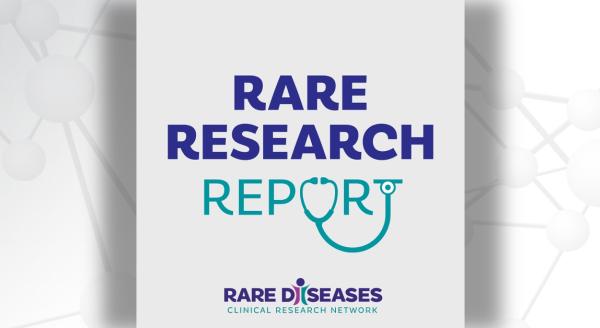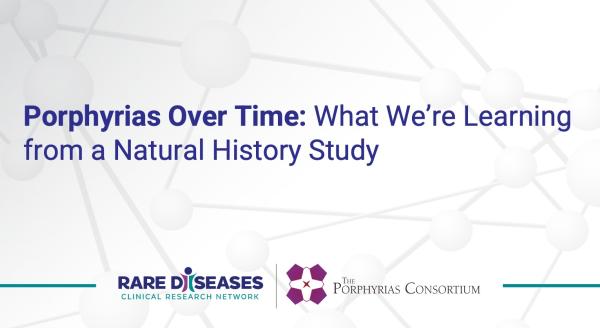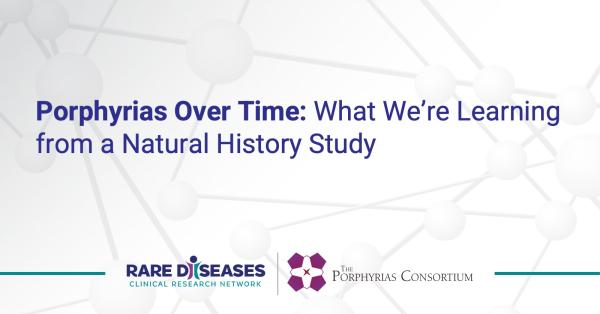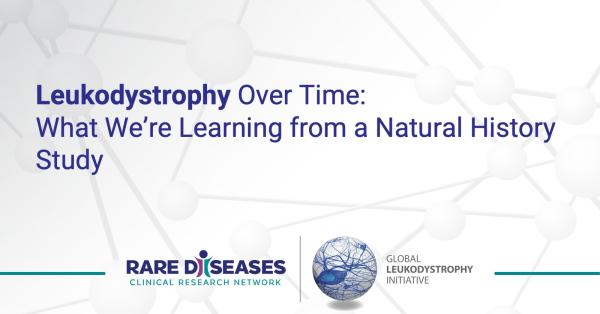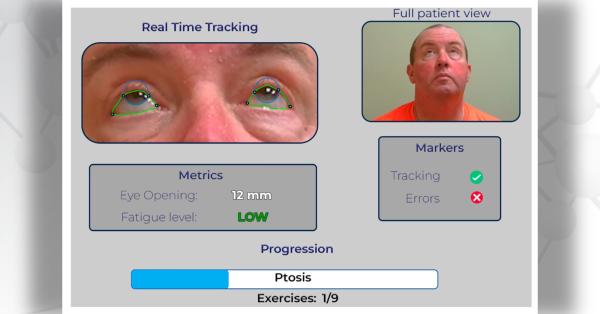The Porphyrias Consortium (PC) of the Rare Diseases Clinical Research Network, an initiative of the Office of Rare Diseases Research at NCATS is devoted to improving the understanding of the natural history of the eight major porphyrias. We seek to improve the diagnosis and treatment of these disorders, as well as to advance understanding of the pathogenesis of cardinal clinical features of the disorders. The eight porphyrias are caused by inborn errors of heme biosynthesis and include four acute hepatic porphyrias – acute intermittent porphyria, hereditary coproporphyria, variegate porphyria, and δ-Aminolevulinic acid dehydratase deficiency porphyria – and four erythropoietic cutaneous porphyrias: congenital erythropoietic porphyria, erythropoietic protoporphyria, x-linked protoporphyria, and porphyria cutanea tarda. The basic, translational, and clinical work of the PC has led to the development of guidelines for the diagnosis and management of the acute hepatic and erythropoietic porphyrias, which are characterized by life-threatening acute neurovisceral attacks and severe cutaneous photosensitivity, respectively. In addition to our main natural history study, the Longitudinal Study of the Porphyrias (LS), the PC is carrying out five NIH- and FDA-approved clinical trials and observational studies. The PC has been successful in recruiting over 650 biochemically and gene mutation-confirmed patients with the porphyrias into the LS.
The PC’s senior investigators and their porphyria centers are Dr. Robert. J. Desnick (Icahn School of Medicine at Mount Sinai, New York, NY), Dr. Karl E. Anderson (University of Texas Medical Branch at Galveston), Dr. Joseph R. Bloomer (University of Alabama at Birmingham), Dr. D. Montgomery Bissell (University of California at San Francisco), Dr. Herbert L. Bonkovsky (Wake Forest University Baptist Medical Center, Winston-Salem, NC), and Dr. John D. Phillips (University of Utah, Salt Lake City, UT).
Critical to accomplishing the PC’s goals is the superb working relationship of the primary investigators and Desiree Lyon-Howe, the founder and executive director of the American Porphyria Foundation (APF). This excellent relationship has facilitated cooperation with industry projects (Clinuvel Pharmaceuticals, Alnylam Pharmaceuticals, and Recordati Rare Diseases) as well as investigator-initiated studies with industry collaboration (Gilead Sciences), to develop new and improved treatments for these disorders. Another highlight of the PC and the APF is its “Protect the Future” program, a training program at each site to develop the next generation of basic and clinical porphyria experts. As part of this goal, the PC has established three satellite sites led by Dr. Angelika Erwin (Cleveland Clinic, Cleveland, OH), Dr. Cynthia Levy (University of Miami, Miami, FL), and Dr. Sioban Keel (University of Washington, Seattle, WA). The satellite sites participate in the LS and have an immediate impact in providing porphyria expertise to areas that previously lacked it.
The staff at each center includes the lead investigators, co-investigators, researchers, research coordinators, and laboratory staff. Together, these personnel collaborate to accomplish the goals of the PC and provide up-to-date information to patients and their families, health professionals, and the public.
The primary sources of funding for the PC’s cooperative agreement award are the National Institute of Diabetes and Digestive and Kidney Diseases (NIDDK), and the Office of Rare Diseases Research (ORDR) at NCATS. If you would like more information about the PC, please contact the PC project manager, Hetanshi Naik at the Icahn School of Medicine at Mount Sinai.


